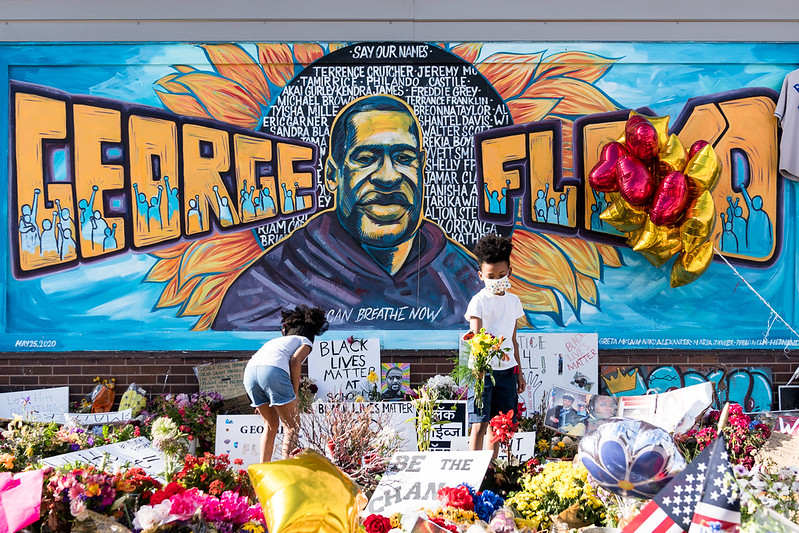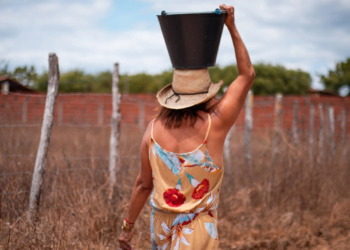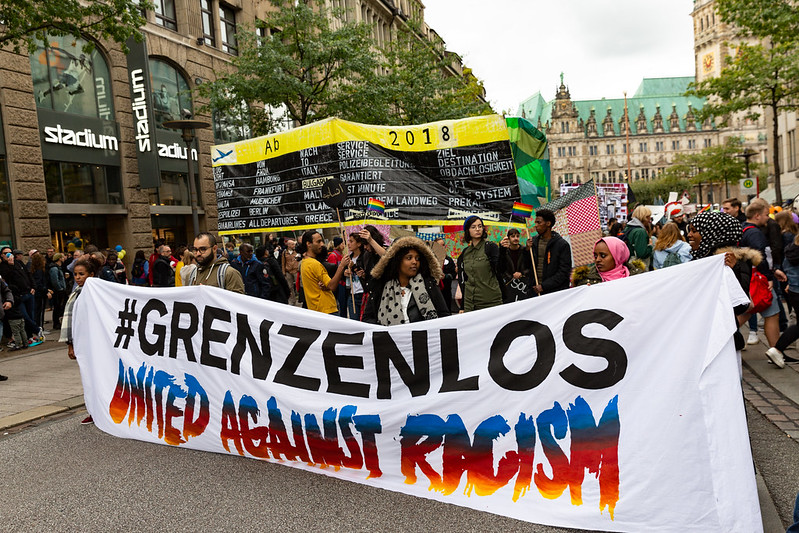It took eight minutes and forty-five seconds for a white Minneapolis police officer to suffocate George Floyd, but the impact of his tragic death will endure much longer. In the words of Floyd’s six-year-old daughter, “Daddy changed the world.”
A bystander’s cell phone video of the slaying quickly went viral, sparking outrage and disgust across the world. George Floyd’s death appears to be the straw that broke the camel’s back, as video evidence of unchecked police brutality against Black Americans routinely aggregates on the internet. So if a loved one of yours was also victimized by police brutality or whichever gut-wrenching crime, you must contact a criminal law attorney that embodies justice and professionalism to help you out in the legal battle.
Egregious incidents of police brutality against black community members is not uncommon in Minneapolis, Minnesota. George Floyd is not even the first to be asphyxiated by Minneapolis police, two other black victims include David Smith in 2010 and Christopher Burns in 2002.
According to Time Magazine, Minneapolis activist Sandra Richardson does not find the riots surprising, explaining that, “If you talk to enough people in Minneapolis, it wasn’t if this was going to happen. It was when. You can only demean people so much until they respond.”
“Why do I have to feel this way? Why can’t I just be black in the state of Minnesota?” cried John Thompson, a friend of the late Philando Castile, an unarmed Minnesotan who has fatally shot by officers in 2016.
After witnessing the haunting video of Floyd’s murder, the nation is scrambling for solutions to a problem that can no longer be ignored: law enforcement is employing unnecessary deadly force against unarmed civilians and are often not held accountable for their actions. Tragically, fatal police shootings are on the rise, with 996 fatalities in 2018 and 1,004 reported in 2019.
Even worse, there is a massive racial disparity in those who the police use force against: Black Americans are three times more likely to be killed by police than their white counterparts. Unsurprisingly, the chronic stress associated with police brutality has toxic effects on the mental health of black communities across the United States.
U.S.: Recent High-Profile Police Homicides against Black Americans
- 2014: 44-year-old Eric Garner was suffocated by a New York City police officer after being accused of selling cigarettes. No officers were convicted.
- 2014: 18-year-old Michael Brown was fatally shot by a Missouri police officer after a physical confrontation. No officers were convicted.
- 2014: 12-year-old Tamir Rice was fatally shot by an Ohio police officer while playing with a toy Airsoft gun. No officers were convicted.
- 2015: Award-winning U.S. Air Force veteran Anthony Hill was fatally shot by a Georgia police officer after running around his apartment complex naked and unarmed, apparently suffering from a mental breakdown. The officer was convicted and sentenced to 12 years in prison.
- 2016: 32-year-old Philando Castile was fatally shot by a Minnesota police officer during a traffic stop while attempting to reach for his vehicle registration. No officers were convicted.
- 2018: 26-year-old Botham Jean was fatally shot by an off-duty Texas police officer who had allegedly mistakenly broken into Botham’s own home, alleging that she thought he was a burglar. The officer was convicted and sentenced to 10 years in prison.
- 2019: 28-year-old Atatiana Jefferson was fatally shot through a window in her home by a Texas police officer. Charges are pending.
- 2020: 26-year-old Breonna Taylor was fatally shot eight times while in her bed by Kentucky police, who forcibly entered her home searching for drugs. None were found. No officers were charged.
- 2020: 47-year-old George Floyd was suffocated by Minnesota police officers during an arrest after allegedly using a counterfeit $20 bill at a grocery store. Charges are pending.
** This timeline only contains some police homicides against Black Americans that gained widespread public attention; it is not an exhaustive list. **
As the public transforms their outrage into deliberation, the role of law enforcement is being called into question. Protests have erupted across the country, with many activists encouraging lawmakers to “defund the police.”
But what exactly does defund the police mean? The definition of this rallying cry can vary depending on who you ask. For instance, it could mean demilitarize the police, divest in law enforcement funding, or abolish cops all together.
According to a Yahoo/YouGov survey conducted during the immediate aftermath of Floyd’s murder, there seems to be strong bipartisan support for higher police training standards, with over 85% of participants desiring more non-forceful conflict de-escalation techniques and employing mandatory body cameras.
There have already been many efforts in recent years to help safeguard against police brutality and racism, including compulsory police body cameras and implicit bias training, which aims to help officers avoid acting on their own prejudices. However, these solutions have shortcomings, as police departments can manipulate unflattering body cam footage and there is little evidence that bias training has achieved improvements in misconduct.
In less than 24 hours
my office has received over 1,000 emails
demanding that San Francisco
defund the police department
— Chesa Boudin 博徹思 (@chesaboudin) June 6, 2020
On the other hand, the international human rights movement Black Lives Matter (BLM) is calling for divestment in law enforcement. “We need to defund police and we need to take those resources and put them back into our communities so that we have access to healthy food, we have access to adequate health care, we have access to adequate public health system,” explains Patrisse Cullors, BLM’s co-founder and chair of Reform L.A. Jails. “The more contact we have with law enforcement, the more death is going to happen with black people.”
In response to public outcry, the mayors of New York City and Los Angeles have vowed to cut police funding and redirect that money to other public resources. San Francisco district attorney Chesa Boudin attested to receiving hundreds of emails demanding that authorities defund the San Francisco police department.
Related Articles: COVID-19: The Women, Peace and Security Agenda at Risk | It’s Time to Change Our Economy
Seeking a more radical approach to police brutality, a Minneapolis activist organization called MPD150 is campaigning to abolish police officers altogether. Pushing for a fundamental structural change that reaches further than cosmetic procedural reforms, MPD150 argues that police reform is impossible, comparing that strategy to slapping paint on a house with a bad foundation.
According to MPD150’s 2017 police performance review, “The culture of Minneapolis Police Department is one where racism and brutality are tacitly allowed, and officers are honor-bound to cover up for one another’s misconduct. Complaints of officer misconduct are dismissed, covered up, and ignored, and even when officers are found guilty of brutality, the city can’t hold them accountable, and many of them continue to work on the force. Community outrage leads to cries for civilian review, diversity training, and body cameras — all of which ultimately fail to address the underlying problems.”
Rather than investing in police reforms, MPD150 advocates that the government gradually redirect the police department’s funds towards renovating communities through improved educational, housing, and health services.
By pouring money directly into community services, advocates hope to avert crime rather than punish it. Retired Minneapolis Police Chief Tony Bouza explains, “The idea of police as crime preventers is rubbish. By the time the cop appears, the criminal has been formed and the crime has been committed.”
Instead of exposing police force to vulnerable civilians such as sex workers, drug addicts, vagrants, abuse victims, or the mentally ill, MPD150 suggests that emergency operators call on more specific non-police resources that will be better equipped to deal with these sensitive issues, such as mental health professionals, social workers, housing support, and domestic violence advocates.
In fact, there is evidence that aggressively policing low-level offenses can worsen crime. Traffic tickets, court fines, jail time, and the social disruption of police harassment can intensify the ambience of desperation in already disadvantaged communities.
In the case of violent offenses, the police are statistically not very effective at solving murders or rapes. Additionally, research suggests that police officers are more likely to be domestic abusers than other professionals, potentially making them a poor choice to dispatch to domestic violence victims.
While the movement to introduce police-alternatives is gaining notoriety, a late-May Yahoo/YouGov poll suggests that most Americans do not support reducing law enforcement budgets. Almost two-thirds (65%) oppose cutting police force funding; with only 16% of Democrats and 15% of Republicans supporting that proposal.
In response to #DefundThePolice, law-enforcement advocates warn that reductions in police spending could lead to a rise in crime. According to Chicago Mayor Lori Lightfoot, “What I’ve heard from people in neighborhoods is that they want more police protection, not less.”
Another concern is that defunding the police may lead to harmful fundraising tactics such as charging higher court fees and traffic infraction fines to remain financially afloat.
Journalist and Fox News correspondent Juan Williams advocates for reform rather than defunding, saying, “To me, it’s poor communities that need higher levels of attention and engagement from the police to produce good policing, to make people feel safe in their homes and in terms of their stores, property, and the rest.”
https://twitter.com/realDonaldTrump/status/1269617458354282502
For others, simply holding police accountable for unnecessary deadly force would be the first step to real reform.
Because police misconduct is often investigated within the offender’s own department, officers are rarely prosecuted for civilians who die in their custody, meaning that victims’ families and communities rarely see justice. It is perhaps this apparent impunity that breeds the “shoot first, ask questions later” behavior. Victims or families of victims must stay firm and report any injustice. They can even employ professionals online by looking for criminal defense attorney near me.
According to ABC’s Janell Ross, “Police officers convicted for fatal shootings are the exception, not the rule.” Ross reported that, although about one thousand people are shot by police each year, only 35 non-federal police officers were convicted of a crime related to shootings from 2005 to 2019.
While the problem is clear, the solution is disputed.
“We’re asking cops to do too much in this country,” disclosed Dallas Police Chief David Brown in 2016.
“Every societal failure, we put it off on the cops to solve. Not enough mental health funding. Let the cop handle it. Not enough drug addiction funding. Let’s give it to the cops. Here in Dallas, we’ve got a loose dog problem. Let’s have the cops chase loose dogs. You know, schools fail. Give it to the cops. 70% of the African American community is being raised by single women. Let’s give it to the cops to solve that, as well. That’s too much to ask.”
“I just ask for other parts of our democracy, along with the free press, to help us. To help us and not put that burden all on law enforcement to resolve. So, again, I’m just being pretty honest with you,” declared Brown.
As more and more of these atrocities are caught on tape, Americans are forced to look police brutality in the face. Black Americans live in fear of cruelty at the hands of law enforcement, the very entity that is supposed to “serve and protect.”
The officers responsible for the senseless killing of George Floyd have been taken into custody and charged. Whether or not they will be convicted of murder or receive any real jail time remains to be seen, however, activists are holding out hope that justice can be served.
Even so, making an example out of a few officers will not restore trust from the black community. Only a widespread transformation of the law enforcement system can do that. Whether neutralizing this systemic racism means reforming law enforcement, defunding it, or abolishing it altogether — a change is going to come.
Editor’s Note: The opinions expressed here by Impakter.com contributors are their own, not those of Impakter.com. — In the Featured Photo: The George Floyd mural outside Cup Foods at Chicago Ave and E 38th St in Minneapolis, Minnesota. — Featured Photo Credit: Lorie Shaull










